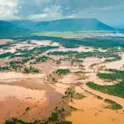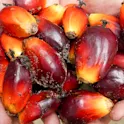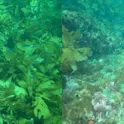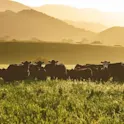
Environment
14 Jan 2020
eDNA expands species surveys to capture a more complete picture
Casting a genetic net identifies more marine vertebrates than traditional surveys but has limits: Frontiers in Marine Science

Environment
14 Jan 2020
Casting a genetic net identifies more marine vertebrates than traditional surveys but has limits: Frontiers in Marine Science

Environment
10 Dec 2019
Using near-real-time satellite data could improve emergency management: Frontiers in Environmental Science

Environment
09 Dec 2019
Only rapid reduction of greenhouse gases will save Gulf of Mexico corals: Frontiers in Marine Science

Environment
27 Nov 2019
International team investigates environmentally sustainable palm oil production: Frontiers in Forests and Global Change

Climate action
17 Oct 2019
A Stanford-led study suggests ecosystem investments to minimize storm damage; Frontiers in Marine Science

Climate action
16 Oct 2019
Researchers examined the cumulative impacts of recent extreme climate events on marine habitats around Australia; Frontiers in Marine Science

Environment
15 Oct 2019
Oil palm is alternatively seen as a gift from god or a crime against humanity – according to science, it is neither; Frontiers in Forests and Global Change

Climate action
06 Sep 2019
Researchers have fine-tuned the records used to make global climate predictions using high-resolution microscopic techniques and geochemical modeling; Frontiers in Marine Science

Sustainability
29 Aug 2019
The USDA blueprint predicts genomic technologies will play an increasingly central role in global livestock production; Frontiers in Genetics

Environment
27 Aug 2019
Logging in the timber-rich forests of northern Congo is a major driver of the region’s economic development — and its ecological impoverishment; Frontiers in Forests and Global Change

Climate action
26 Aug 2019
US climate marches increased optimism about people’s ability to work together to address climate change, according to a survey of bystanders; Frontiers in Communication

Sustainability
23 Aug 2019
Overeating is bad for our planet’s health, not just our own. Image: shutterstock. Overeating wastes far more food than we throw away, suggests research — by Matthew Prior, Frontiers science writer With every unfinished meal since Band Aid, you’ve heard it: “people are starving in Africa, y’know”. True, the UN estimates that rich countries throw away nearly as much food as the entire net production of sub-Saharan Africa – about 230 million tonnes per year. But is it any less a waste to eat the excess food? Morally, it’s equivocal. Nutritionally, it depends. However: the land, water and carbon footprints are just the same. In fact, researchers in Italy have proposed a way to measure the ecological impact of global food wastage due to excessive consumption. First, they estimated the net excess bodyweight of each country’s population – based on BMI and height data – and distributed its energy content among foods groups according to national availability. Published in Frontiers in Nutrition, the results suggest that direct food waste – thrown away or lost from field to fork – is a mere hors-d’œuvre. Metabolic Food Waste and Ecological Impact of Obesity in FAO World’s Region► Read original article► Download original article (pdf) […]

Environment
13 Aug 2019
“Proforestation” has significant potential in the United States; Frontiers in Forests and Global Change

Climate action
25 Jul 2019
Most YouTube videos relating to climate change prevention oppose scientific consensus and hijack technical terms to appear credible, says study; Frontiers in Communication

Space sciences and astronomy
18 Jul 2019
Nutraceuticals that preserve muscle in reduced gravity will support long-term space missions; Frontiers in Physiology
Get the latest research updates, subscribe to our newsletter